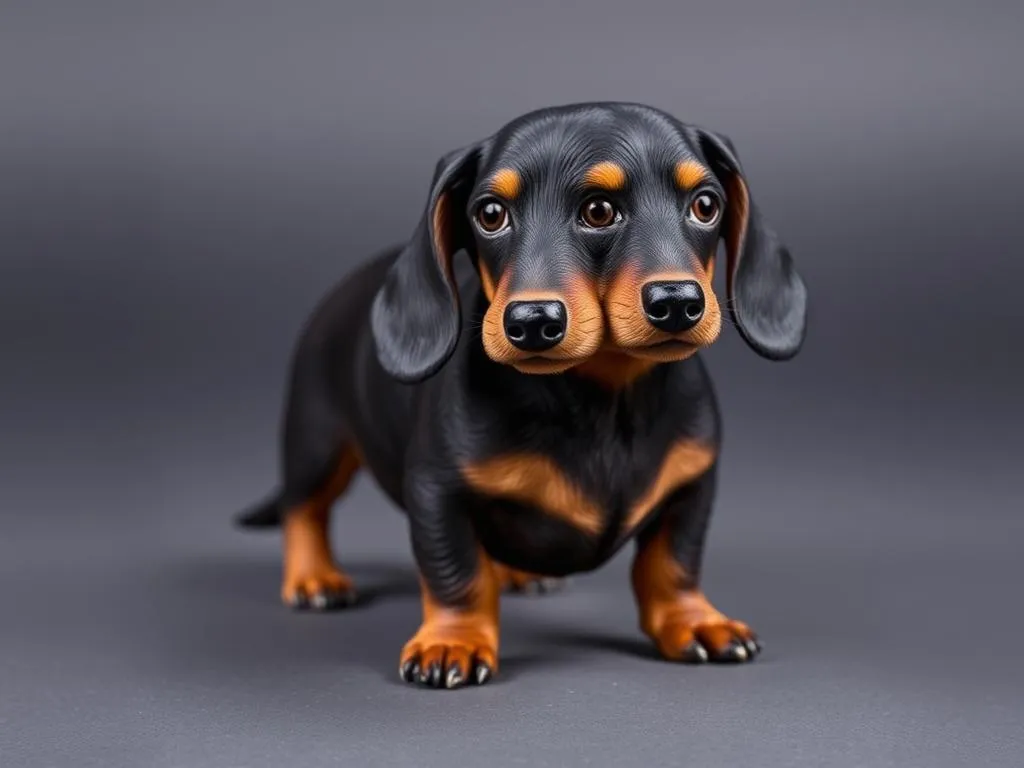
Introduction
The world of dog breeds is a vast and colorful tapestry, showcasing a remarkable diversity that caters to various lifestyles, preferences, and needs. Each breed comes with its own unique set of characteristics, making the selection process a vital part of responsible pet ownership. Among the myriad of breeds available, the miniature dachshund stands out as an adorable and spirited companion that has captured the hearts of dog lovers worldwide.
The miniature dachshund originated in Germany, bred to hunt small game such as badgers and rabbits. Their distinctive long bodies and short legs make them instantly recognizable. Their playful nature and loyalty make them not only great hunters but also cherished family pets. This article delves into everything you need to know about the miniature dachshund, from their characteristics and care requirements to health considerations and living conditions.
Understanding the Miniature Dachshund
Breed Characteristics
The miniature dachshund is a small breed, typically weighing between 8 and 11 pounds and standing about 5 to 6 inches tall at the shoulder. Their unique elongated bodies and short legs contribute to their charming appearance. They come in three coat types: smooth, long-haired, and wire-haired, each offering its own aesthetic appeal and grooming needs.
Coat Colors: The miniature dachshund can be found in various colors, including:
- Red
- Black and tan
- Chocolate and tan
- Dapple (a mix of colors)
Temperament and Personality Traits
Miniature dachshunds are known for their lively and curious nature. They are often described as brave, intelligent, and sometimes stubborn. Their playful demeanor makes them ideal companions for families, while their affectionate nature makes them excellent pets for singles and seniors alike.
Common Health Issues
Despite their charming attributes, the miniature dachshund is prone to certain health issues, primarily due to their unique body structure. Common health concerns include:
- Intervertebral Disc Disease (IVDD): The elongated spine can lead to disc problems, which may result in pain or paralysis.
- Dental Problems: Their small mouths can lead to overcrowding and dental issues.
- Obesity: Due to their small size, they can easily gain weight, leading to further health complications.
Understanding these health issues is crucial for potential owners to ensure the well-being of their pets.
History of the Miniature Dachshund
The origins of the miniature dachshund can be traced back to Germany in the 17th century. Bred as a smaller version of the standard dachshund, these dogs were specifically designed for hunting small burrowing animals. Their keen sense of smell and tenacity made them excellent hunters.
As time progressed, the breed evolved from a working dog to a beloved companion. The miniature dachshund gained popularity in the 20th century, particularly in the United States, where they became a favorite among families and individuals alike.
Care Requirements
Nutrition and Diet
Providing proper nutrition is vital for the health and longevity of your miniature dachshund. A high-quality, balanced diet formulated for small breeds is recommended. Look for dog foods that list meat as the first ingredient and contain essential nutrients.
Common dietary concerns:
- Obesity: Small breeds like the miniature dachshund are particularly prone to obesity, so portion control and regular exercise are crucial.
- Food Allergies: Be vigilant for signs of allergies such as itching or digestive issues. Consult your vet for advice on allergen-free diets if needed.
Grooming Needs
The grooming needs of a miniature dachshund largely depend on their coat type:
- Smooth Coats: Minimal grooming is required. A weekly brush will help remove loose hair.
- Long-Haired Coats: Require more attention. Regular brushing (1-2 times a week) is necessary to prevent mats and tangles.
- Wire-Haired Coats: Should be hand-stripped to maintain coat texture. Regular brushing is also recommended.
Regardless of the coat type, regular nail trimming and dental care are essential components of their grooming routine.
Exercise and Activity Levels
Despite their small size, miniature dachshunds are energetic dogs that require daily exercise. A moderate routine of 30 minutes of walking, combined with playtime, will help keep them fit and mentally stimulated.
Mental stimulation is equally important; interactive toys, puzzle games, and training sessions can keep their minds sharp and engaged.
Training the Miniature Dachshund
Basic Training Tips
Training a miniature dachshund can be both rewarding and challenging due to their independent nature. Early socialization is crucial. Expose them to various environments, people, and other animals to ensure they grow into well-adjusted adults.
Recommended training methods include:
- Positive Reinforcement: Reward-based training works best with this breed. Use treats, praise, and play as incentives.
- Consistency: Be consistent with commands and house rules to avoid confusion.
Behavioral Challenges
While affectionate and loyal, miniature dachshunds can develop behavioral issues if not properly trained. Common challenges include:
- Barking: They may bark excessively if not trained to control their vocalizations.
- Digging: Their instinct to burrow can lead to digging behavior.
To manage these issues, redirect their energy through training and provide plenty of mental and physical exercise.
Health Considerations
Common Health Problems
The miniature dachshund is susceptible to several health problems, including:
- Intervertebral Disc Disease (IVDD): Pay attention to signs of pain, such as reluctance to move or yelping when picked up.
- Dental Issues: Regular dental check-ups and cleanings are essential to prevent periodontal disease.
- Obesity: Monitor their weight closely and adjust their diet and exercise as necessary.
Regular Veterinary Care
Routine veterinary check-ups are vital to maintaining the health of your miniature dachshund. Regular vaccinations, parasite prevention, and dental care should be part of their healthcare routine. Early detection of health issues can lead to better outcomes, so don’t skip those vet visits!
Living with a Miniature Dachshund
Ideal Living Conditions
Miniature dachshunds are adaptable dogs that can thrive in various living conditions, from apartments to large homes. However, they do best in environments where they can receive ample attention and companionship.
Considerations for families:
- Children: They generally get along well with children but should be supervised to prevent rough play that could injure them.
- Other Pets: Early socialization can help them coexist peacefully with other pets.
Bonding with Your Miniature Dachshund
Building a strong bond with your miniature dachshund is essential for a happy relationship. Engage in activities that promote bonding, such as:
- Playtime: Interactive games like fetch or tug-of-war can strengthen your connection.
- Training Sessions: Regular training not only teaches your dog but also fosters a sense of teamwork and communication.
Developing a routine that includes companionship, play, and training will enhance your relationship with your miniature dachshund.
Adoption and Buying a Miniature Dachshund
Where to Find a Miniature Dachshund
When looking to bring a miniature dachshund into your home, consider where to adopt or purchase one.
- Reputable Breeders: Look for breeders who prioritize health and temperament. Ask for health clearances and references from previous buyers.
- Rescue Organizations: Many dachshunds are in need of loving homes. Consider adopting from a shelter or rescue group.
Costs Associated with Ownership
Owning a miniature dachshund comes with both initial and ongoing costs, including:
- Initial Costs: Adoption fees or purchase prices can range from $300 to $3,000, depending on the source and pedigree.
- Ongoing Costs: Budget for food, grooming, veterinary care, and supplies, which can total $500 to $1,000 annually.
Understanding these costs is essential for potential owners to ensure they can provide for their new furry friend.
Conclusion
The miniature dachshund is a charming and lively breed that offers companionship and joy to families and individuals alike. Their unique characteristics, playful nature, and loyalty make them an appealing choice for dog lovers. However, potential owners must be aware of their care requirements, health considerations, and the commitment involved in responsible pet ownership.
Whether you’re considering bringing a miniature dachshund into your home or simply appreciate the breed’s unique charm, this little dog has a special place in the hearts of many.









